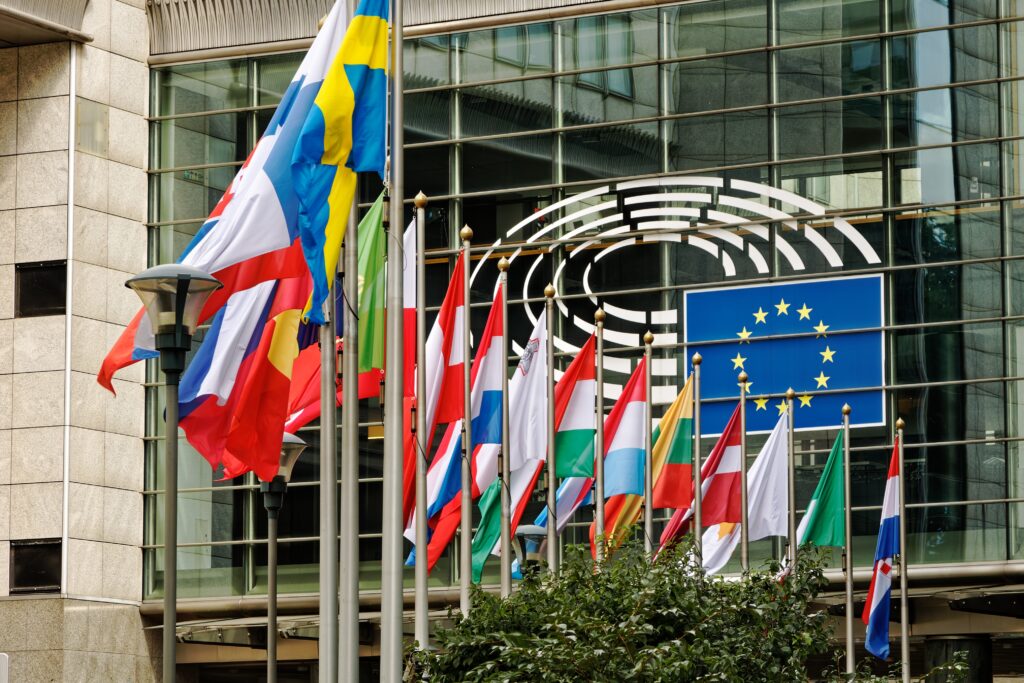The European Union operates with a shared budget to support its member states. Some countries contribute more, while others benefit the most. Wealthier western and northern European nations tend to pay more into the budget. Central and eastern European nations are primarily net beneficiaries.
The EU budget reflects principles of solidarity. It allows countries to achieve goals that would be difficult alone. Some members are net contributors, paying more than they receive, while others are net recipients, receiving more funding than they contribute.
Major Contributors and Beneficiaries
According to the European Commission’s 2023 data, Germany (€33.8bn), France (€25.8bn), Italy (€18.8bn), and Spain (€13.6bn) are the largest contributors. Nine countries contributed less than €1bn, with the smallest contributions coming from Malta (€112m), Cyprus (€259m), and Estonia (€355m).
Among the major beneficiaries, France received €16.5bn, followed by Poland (€14.1bn), Germany (€14bn), Italy (€12.8bn), and Spain (€12.1bn). At the bottom, Malta (€277m), Cyprus (€393m), and Slovenia (€952m) received the least funding.
Ten EU countries are net contributors, while 17 are net beneficiaries. Germany is the largest net contributor, at €19.8bn. Other net contributors include France (€9.3bn), The Netherlands (€6.3bn), Italy (€6bn), Sweden (€1.6bn), and others.
Poland leads as the top net recipient at €7.1bn. Romania follows with €5.9bn, Belgium (€4.8bn), Hungary (€4.4bn), and Greece (€3.9bn).
Per-Person Contributions and Net Beneficiaries
The picture changes when looking at contributions and receipts per person. In 2023, contributions per person ranged from €137 in Bulgaria to €688 in Luxembourg. Among the “Big Four” contributors, German citizens contributed €403 each, while the figures were €378 in France, €318 in Italy, and €281 in Spain.
The Netherlands topped the list for net contributions per person in 2023 at €350. Ireland (€240) followed, with Germany (€235), Denmark (€210), and Sweden (€156) also ranking highly. France contributed the least per person at €30.
Luxembourg stands out as the top net beneficiary per person, receiving €3,081. Croatia ranks second, with €619 per person. The three Baltic states (Estonia, Latvia, Lithuania) each received over €500 in net receipts per person.
Poland ranks third-lowest in net receipts per person at €191, despite being the largest net recipient overall. Belgium (€404 per person) and Luxembourg also rank as net recipients due to hosting European institutions like the European Commission and European Parliament.
Beyond the Numbers
While the net figures show who contributes and benefits the most, they don’t capture all the advantages of EU membership. The European Commission noted that EU membership provides benefits beyond these financial distributions. Spillover effects mean EU investments can positively impact multiple countries.
The EU budget primarily serves as a tool for long-term growth and competitiveness. It finances projects in rural development, environmental protection, education, research, border security, international development, and human rights.
These shared investments ensure a more equitable and stable Europe, offering opportunities to all member states beyond direct financial transfers.
